Filter by
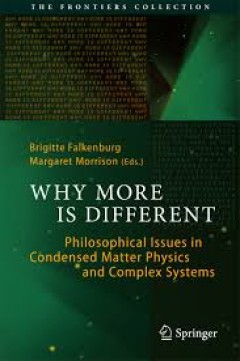
Why More Is Different Philosophical Issues in Condensed Matter Physics and C…
The physics of condensed matter, in contrast to quantum physics or cosmology, is not traditionally associated with deep philosophical questions. However, as science - largely thanks to more powerful computers - becomes capable of analysing and modelling ever more complex many-body systems, basic questions of philosophical relevance arise. Questions about the emergence of structure, the nature o…
- Edition
- -
- ISBN/ISSN
- 978-3-662-43911-1
- Collation
- -
- Series Title
- -
- Call Number
- -
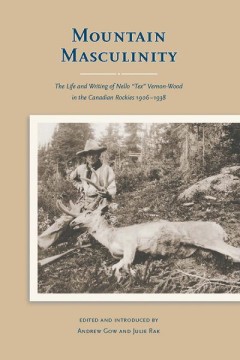
Mountain Masculinity the Life and Writing of Nello “Tex” Vernon-Wood in …
In 1906, Nello Vernon-Wood (1882–1978) reinvented himself as Tex Wood, Banff hunting guide and writer of “yarns of the wilderness by a competent outdoorsman.” His homespun stories of a vanishing era, in such periodicals as The Sportsman, Hunting and Fishing, and the Canadian Alpine Journal, have much to tell us about the west as envisioned by those who wanted to leave the industrialized w…
- Edition
- Andrew Gow and Julie Rak
- ISBN/ISSN
- 9781897425022.01
- Collation
- -
- Series Title
- -
- Call Number
- 237 pages
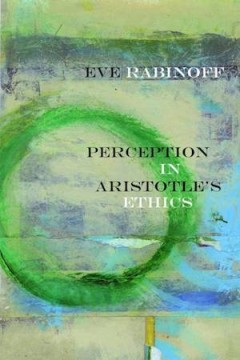
Perception in Aristotle’s Ethics : Rereading Ancient Philosophy
Rabinoff strives to account for ethical perception (aisthesis) in Aristotle's ethics—to give it a place of importance in ethical choice and action—and to offer an account of the faculty of perception expansive enough to include reception of the ethical significance of particulars. The book is motivated by particular features of Aristotle's thought and by increasing philosophical a…
- Edition
- -
- ISBN/ISSN
- 9780810136434
- Collation
- 208 halaman
- Series Title
- -
- Call Number
- 100 RAB p
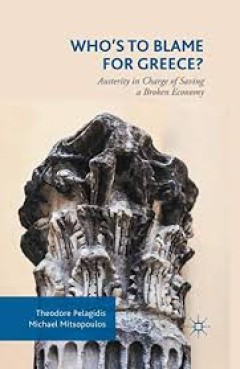
Who’s to Blame for Greece? Austerity in Charge of Saving a Broken Economy
Greece's economy symbolizes in many ways the Eurozone's economic problems and divergent interests as it amasses most of the economic disadvantages characterizing the Eurozone's economy itself. This book presents the economic and political challenges to Greece and the EU member states.
- Edition
- -
- ISBN/ISSN
- 978-1-137-54920-4
- Collation
- -
- Series Title
- -
- Call Number
- -
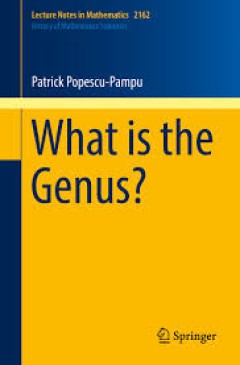
What is the Genus?
Exploring several of the evolutionary branches of the mathematical notion of genus, this book traces the idea from its prehistory in problems of integration, through algebraic curves and their associated Riemann surfaces, into algebraic surfaces, and finally into higher dimensions. Its importance in analysis, algebraic geometry, number theory and topology is emphasized through many theorems. Al…
- Edition
- -
- ISBN/ISSN
- 978-3-319-42312-8
- Collation
- -
- Series Title
- -
- Call Number
- -
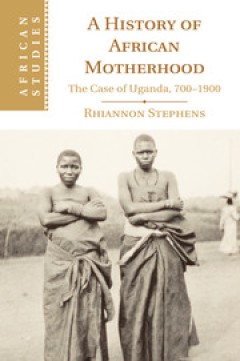
A History of African Motherhood The Case of Uganda, 700–1900
This history of African motherhood over the longue durée demonstrates that it was, ideologically and practically, central to social, economic, cultural and political life. The book explores how people in the North Nyanzan societies of Uganda used an ideology of motherhood to shape their communities. More than biology, motherhood created essential social and political connections that cut acros…
- Edition
- -
- ISBN/ISSN
- 9781139344333
- Collation
- -
- Series Title
- African Studies
- Call Number
- -

The Transformation of Global Higher Education, 1945-2015
This book explores some of the major forces and changes in higher education across the world between 1945 and 2015. This includes the explosions of higher education institutions and enrollments, a development captured by the notion of massification. There were also profound shifts in the financing and economic role of higher education reflected in the processes of privatization of universities …
- Edition
- 2
- ISBN/ISSN
- 978-1-137-52869-8
- Collation
- -
- Series Title
- -
- Call Number
- -

Building the new economy :data as capital
"This book proposes blockchain-based currencies, open algorithms, and data cooperatives as the foundation of a new economy that is decentralized, resilient, and secure"--OCLC-licensed vendor bibliographic record.
- Edition
- -
- ISBN/ISSN
- 0262367408
- Collation
- 1 online resource.
- Series Title
- -
- Call Number
- -

How history gets things wrong :the neuroscience of our addiction to stories
Why we learn the wrong things from narrative history, and how our love for stories is hard-wired. To understand something, you need to know its history. Right? Wrong, says Alex Rosenberg in How History Gets Things Wrong . Feeling especially well-informed after reading a book of popular history on the best-seller list? Don't. Narrative history is always, always wrong. It not just incomplete or i…
- Edition
- -
- ISBN/ISSN
- 9780262348416
- Collation
- 1 online resource (289 pages, 8 unnumbered pages of color plates) :illustrations (some color), maps
- Series Title
- -
- Call Number
- -

Invented Edens :techno-cities of the twentieth century
Tracing the design of "techno-cities" that blend the technological and the pastoral. Industrialization created cities of Dickensian squalor that were crowded, smoky, dirty, and disease-ridden. By the beginning of the twentieth century, urban visionaries were looking for ways to improve both living and working conditions in industrial cities. In Invented Edens, Robert Kargon and Arthur Molella t…
- Edition
- -
- ISBN/ISSN
- 9780262276733
- Collation
- 1 online resource (viii, 190 pages) :illustrations, maps.
- Series Title
- -
- Call Number
- -
 Computer Science, Information & General Works
Computer Science, Information & General Works  Philosophy & Psychology
Philosophy & Psychology  Religion
Religion  Social Sciences
Social Sciences  Language
Language  Pure Science
Pure Science  Applied Sciences
Applied Sciences  Art & Recreation
Art & Recreation  Literature
Literature  History & Geography
History & Geography